Atlanta Redemption Ink harnesses the talents of area tattoo artists to summon hope, recovery and transformation for sex trafficking survivors, former gang members and those in the midst of self-harm and addiction recovery.
It was Nikki’s own personal brand of ink therapy. Tattoos covered her arms and legs, neck and shoulders, all of them chosen for their significant meaning related to people or events in her life. However, this one was different. Chosen for her, it was a constant reminder of a shameful past she desperately wanted to forget. It was also a dangerous tagalong companion that, if seen and recognized, could betray her into the hands of those who would enslave her again. Branded on her leg by a gang member, this tattoo penetrated much further than skin deep.
“At the time I was like, ‘Oh, this is kind of cool’ or whatever, but I didn’t realize the symbolism in it. When you get branded by a gang member or a trafficker, their symbol that they put on you means that they own you,” she said, pointing out that victims of human trafficking often get caught in the middle while traffickers fight over “ownership” rights. “They can abuse you, beat you, sell you for a different fee and things like that.”
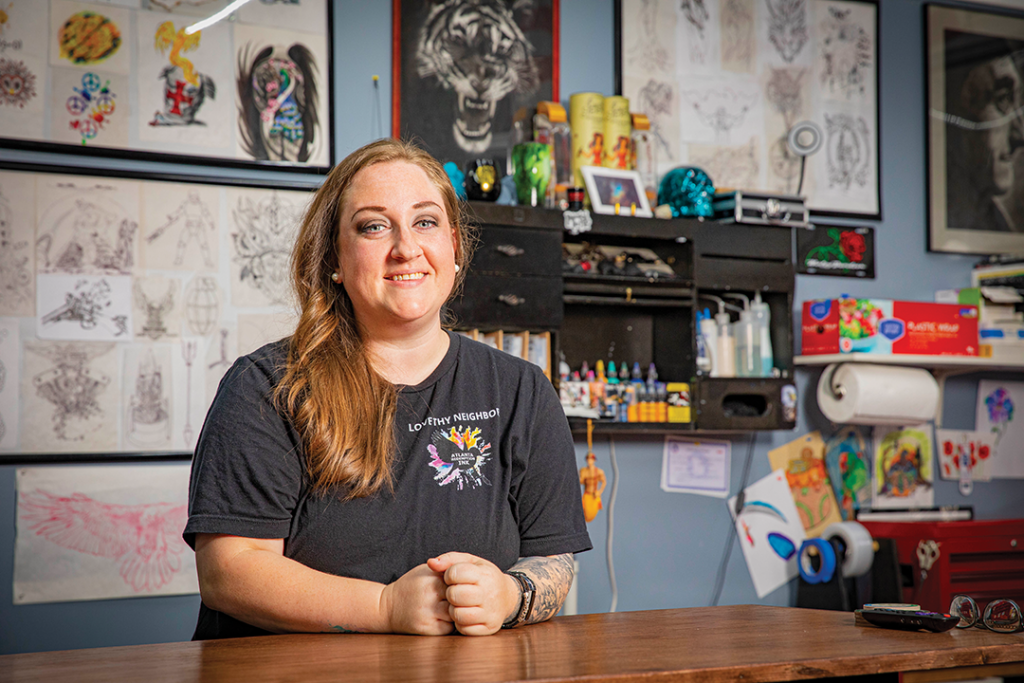
Like many others who end up on the streets as victims of commercial sexual exploitation, Nikki’s life had been punctuated with abuse. The physical abuse she suffered at 6 months old was only the beginning. “My cousin molested me when I was 5,” she said, “and I internalized that as being my fault.” The emotional and sexual abuse continued until age 10. At age 13, she was raped. “By the time I was 19 years old, I was sold for the first time by my best friend’s mom,” she said. “I never really understood what all that meant.”
In the years that followed, a marriage to her longtime boyfriend produced two children but little bliss. Abused by her husband and dogged by her addictions—she had been drinking since age 11 and smoking marijuana since she was 13—her marriage broke up and she lost custody of her two kids. “I really didn’t have any self-worth,” she said. “I really had lost that as a child, so I just really didn’t know the person God had created.” After another abusive relationship ended, she would eventually meet those who would traffic her in Atlanta.
“I was seeing survivors faced with old scars, tattoos forced on them
Atlanta Redemption Ink Founder Jessica Lamb
by traffickers labeling them as property, old gang tattoos from a life they were no longer a part of. It grieved my heart to see people bound by these.”
Nikki had been praying for weeks for God to save her from a life consumed with abuse and addiction. She had been trafficked for about six months when God answered her prayer for deliverance. “I escaped by way of jail,” she said.
Eight months later, Nikki was released and began her journey toward healing and restoration at a residential recovery program in Atlanta for adult female survivors of sex trafficking and exploitation. Yet, almost two years into sobriety and recovery from abuse, she felt ashamed and scared, still held captive by an image she could not leave behind.
Freedom Fighter
Jessica Lamb, now a wife and mother, was trafficked as a teenager before escaping that environment in 2003. Over the last several years, Lamb has been actively involved in a number of volunteer organizations that help trafficking survivors and those struggling with drug addictions. “I saw programs doing incredible work but felt there was a piece missing,” she said. “I was seeing survivors faced with old scars, tattoos forced on them by traffickers labeling them as property, old gang tattoos from a life they were no longer a part of. It grieved my heart to see people bound by these.” In 2017, Lamb established Atlanta Redemption Ink to help other survivors experience the same freedom she had found through tattoo removal and cover-up.
“We advocate for those who are hurting,” she said. “We speak to their true identity, not what a circumstance labeled them as but what God says about them.” Tattoo cover-ups serve not only to dim the pain of a dark past but also to ignite hope for a brighter future. “Often,” Lamb said, “they choose covers that reflect their healing journey.”
Much healing can occur when survivors can reclaim their voices. Even advocates can make the mistake of trying to speak for victims by trying to educate others on what they themselves have not experienced. Lamb wants to ensure survivors have an opportunity to be heard.
“When we encourage them to not be silenced and share their story,” she said, “it’s a symbol to others that healing is possible and tangible.”
Through scholarships and by establishing connections with reputable shops and artists, Lamb and ARI have helped nearly 300 survivors throughout the Southeast and beyond find healing from trafficking and gang-related tattoos, as well as scars from self-harm and drug addiction. Trauma-informed counseling is provided when needed. Atlanta Redemption Ink also makes referrals to other non-profit organizations for help with therapy, educational opportunities, job readiness and safe houses. ARI receives referrals from various law enforcement agencies, anti-trafficking organizations, county drug courts and mental health advocates. The organization also trains law enforcement and communities on the identification of trafficking tattoos and topics related to mental health and human trafficking awareness.
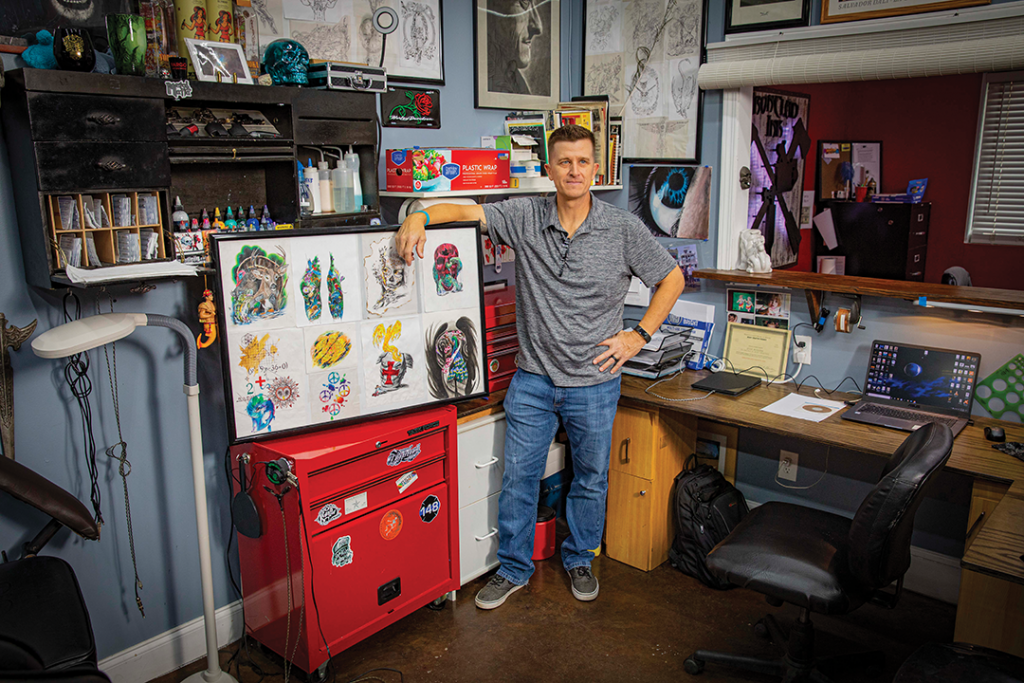
Survivors can apply for assistance on ARI’s website at atlantaredemptionink.com. Applicants will then be contacted by the Atlanta Redemption Ink Care Team, which can assess their needs and provide the appropriate service or referral. If they are approved for a cover-up, Lamb meets them at the tattoo shop to support them through the process.
Unexpected Peace
Nikki was one of the first to go through the program at Atlanta Redemption Ink. As she walked through the door at Iron Clad Ink to get her cover-up, she met Lamb and tattoo artist Jesse Rollins for the first time. A symbol of the secure hope found in Hebrews 6:19, an anchor was the tattoo chosen to forever cover the emblem of shame from the past. As Lamb sat by Nikki’s side, Rollins skillfully applied ink to skin.
“I felt this peace wash over me,” Nikki said. “When I got done with my tattoo and left the shop, I was just in tears because it healed a part of my life that I just wasn’t expecting.”
Fighting Fires, Stigmas
Rollins, who owns and operates Iron Clad Ink, also works as a City of Covington firefighter. Personal experience rests at the heart of why his shop donates time and materials to provide cover-ups for survivors who are referred by Lamb. “It was just kind of a fit,” said Rollins, whose mother left her abusive alcoholic husband before he was born. “Coming from that background, it’s on my heart to help women any way I can. When Jessica approached me and asked if I’d be interested, I really didn’t have to think about it.”
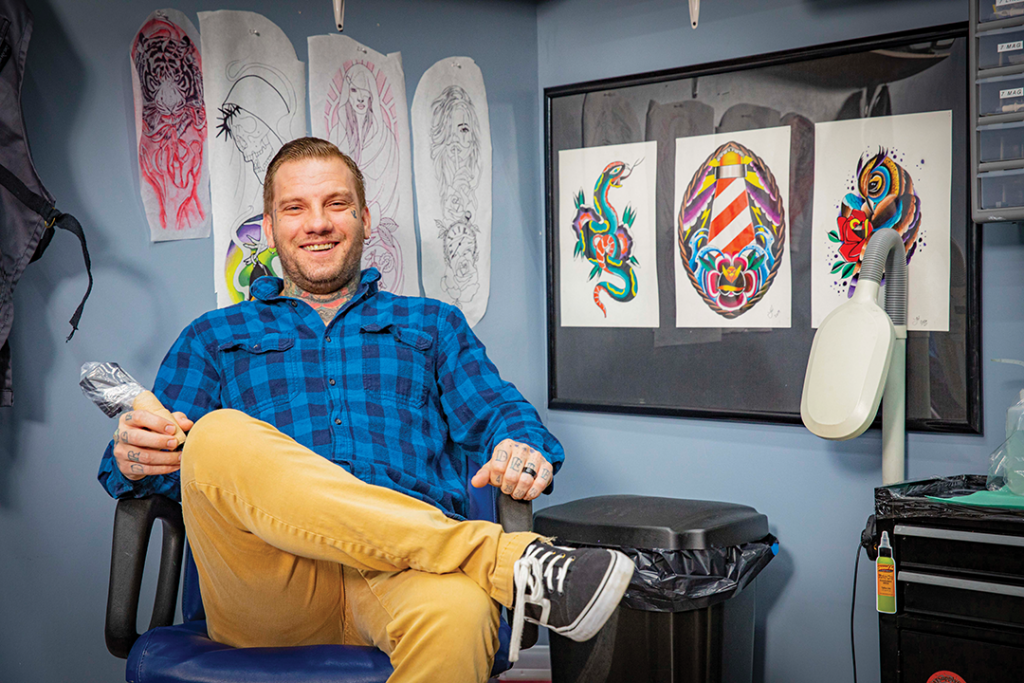
Shop manager and artist Justin Haug admits he “eats, sleeps and breathes tattooing” and experiences a sense of humility whenever he gets the opportunity to do a cover-up for a survivor. “I feel honored to be able to help somebody cover up something that they didn’t want in the first place and to replace it with something that makes them feel beautiful,” he said.
Self-harm scars are perhaps the most demanding cover-ups for Iron Clad Ink artists, both professionally and emotionally. One survivor who walked into Rollins’ shop was especially memorable for the extent of her abuse and the number of scars. “I quit counting at 128 individual scars from her wrist to her elbow,” Rollins said. “They continued up her biceps, but I couldn’t see that far.” It took hours of tedious work over “guttered” skin late into the night, but the covering was completed. Rollins recalls her words of gratitude to this day: “If I could shed tears, I’d be bawling.”
“It turns out she was a self-harmer because, from the age of 5 to 15, she was sexually abused by her father,” Rollins said. “She hadn’t cried since she was 6 years old.”
Though tattoos still bear a degree of stigma in certain areas, attitudes toward them have moderated significantly from what they were just a few years ago. “I grew up in a pretty strict Christian home, and tattoos were taboo,” Rollins said. “[It was assumed] if you had a tattoo you most likely had been in a biker gang or you’d been to prison or you just didn’t care about yourself. That’s changed.”
Public perception of tattoo shops as havens for drugs, vulgarity and violence has also begun to change. “In opening this place, I was trying to get away from that and create a place where anybody would feel welcome and safe,” Rollins said. “It’s not uncommon for me to be tattooing mom and/or dad and the kids are in here hooked to our wi-fi watching movies or playing games.” In fact, the family-friendly Iron Clad Ink was the first tattoo shop in Georgia to be designated as a “Safe Place” for at-risk kids.
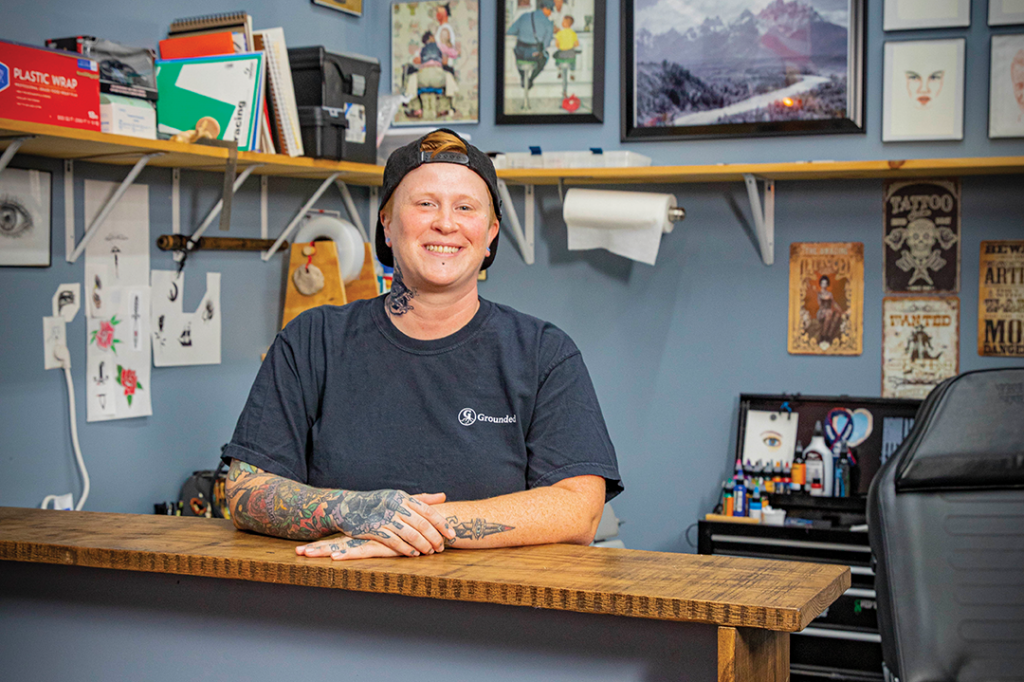
Lamb remains eternally thankful for all the shops that partner with Atlanta Redemption Ink. Cupid Slave Tattoo Shop’s Kayla Tyndall emerged as another valued ally in Newton County. She takes female clients who may not feel comfortable with the all-male staff at Iron Clad Ink.
As a 501(c)(3) non-profit organization, Atlanta Redemption Ink depends entirely on donations and volunteers to fulfill its mission to bring healing and hope to survivors through tattoo cover-ups. Lamb realizes that some may still be skeptical. “They may think, ‘Oh, it’s just another tattoo,’” she said, “but it’s so much more than that.”
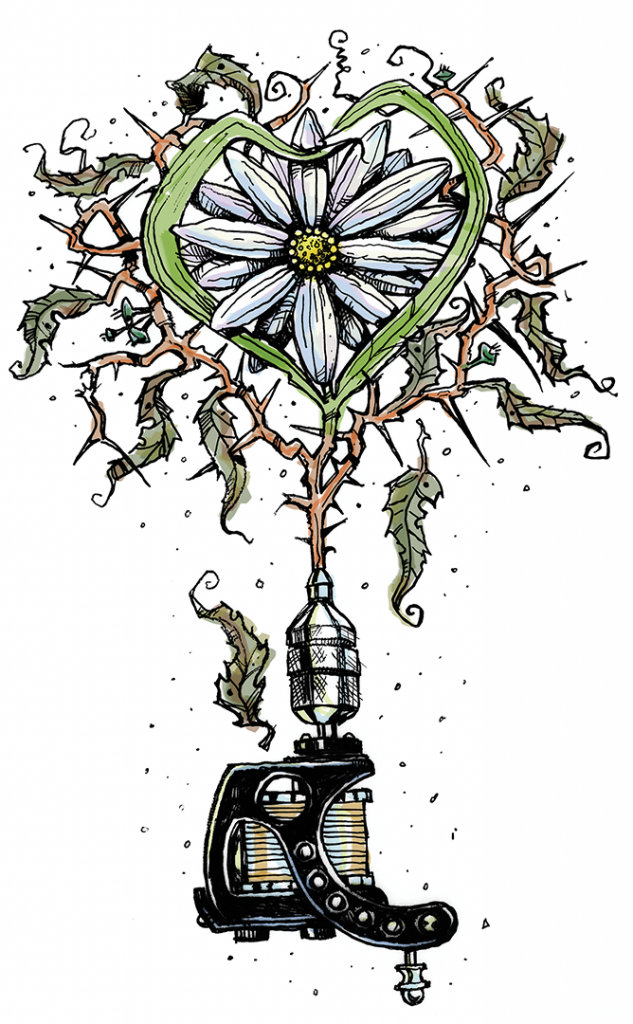
From Victim to Advocate
Nikki has gone from being a victim to advocating for those who have followed in her unfortunate footsteps. Both Lamb and Nikki are now involved with multiple non-profit organizations that help those seeking healing and restoration from abuse. Both women have experienced what it is like to see others transformed through something as simple but profound as a tattoo.
“It’s one of the most beautiful experiences you will ever have,” Nikki said, “to be in someone else’s pain and watch them heal from it, because we didn’t want these things to happen to us. Even if it’s self-harm, that’s not really what you wanted, but it’s what you experienced; and to have it covered up where you’re not re-living it with a visual every single day and to have something [that draws] beauty from ashes is just the most God-given, glorious experience you will ever have in your life. It’s just amazing, and I am so grateful.”
ARI Newton County Partners
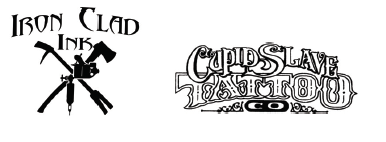
For more information on Atlanta Redemption Ink, visit AtlantaRedemptionInk.com or call 678-926-9946.
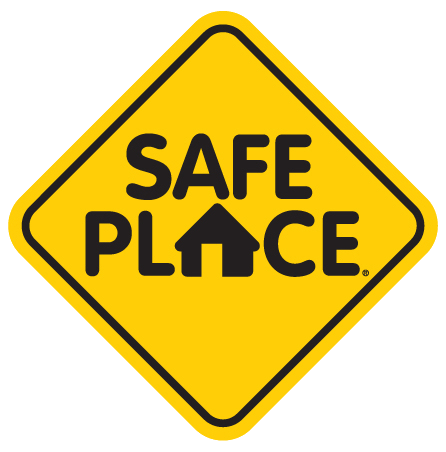
Safe Place is a national youth outreach and prevention program for young people under the age of 18 (up to 21 years of age in some communities) in need of immediate help and safety. As a collaborative community prevention initiative, Safe Place designates businesses and organizations as Safe Place locations, making help readily available to youth in communities across the country. Safe Place locations include: libraries, YMCAs, fire stations, public buses, various businesses, and social service facilities.
Designated Safe Place locations display the Safe Place sign, the universal symbol of youth safety.
Click here to read more stories by David Roten.

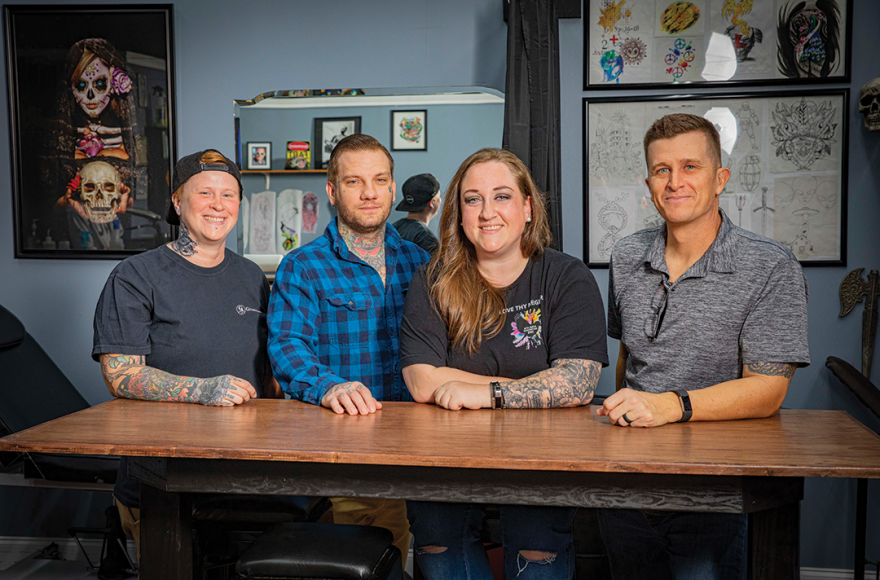
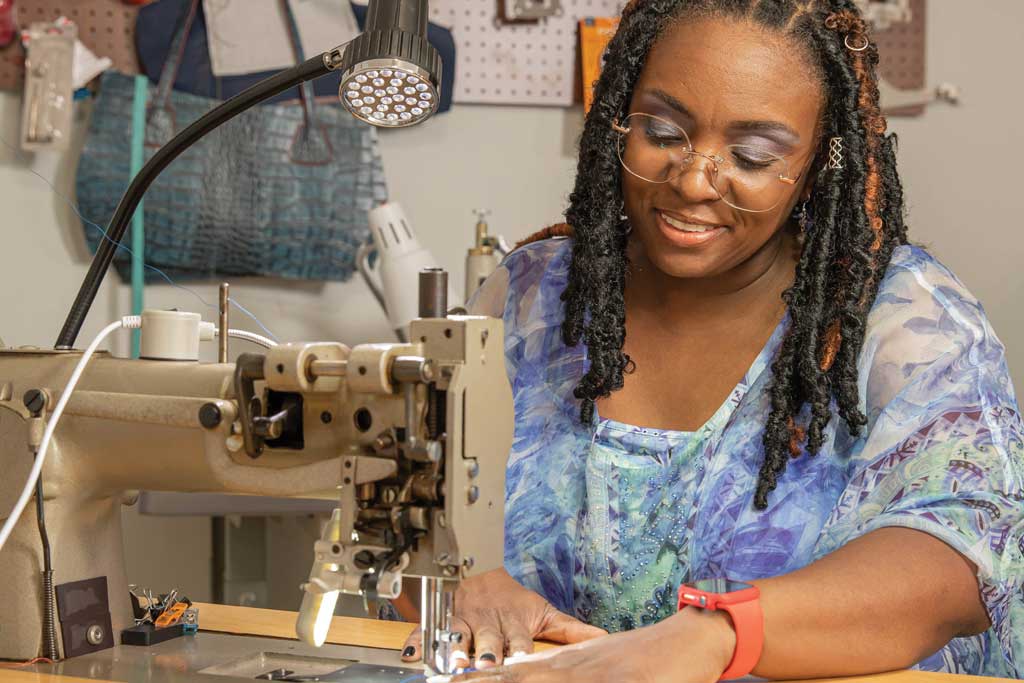
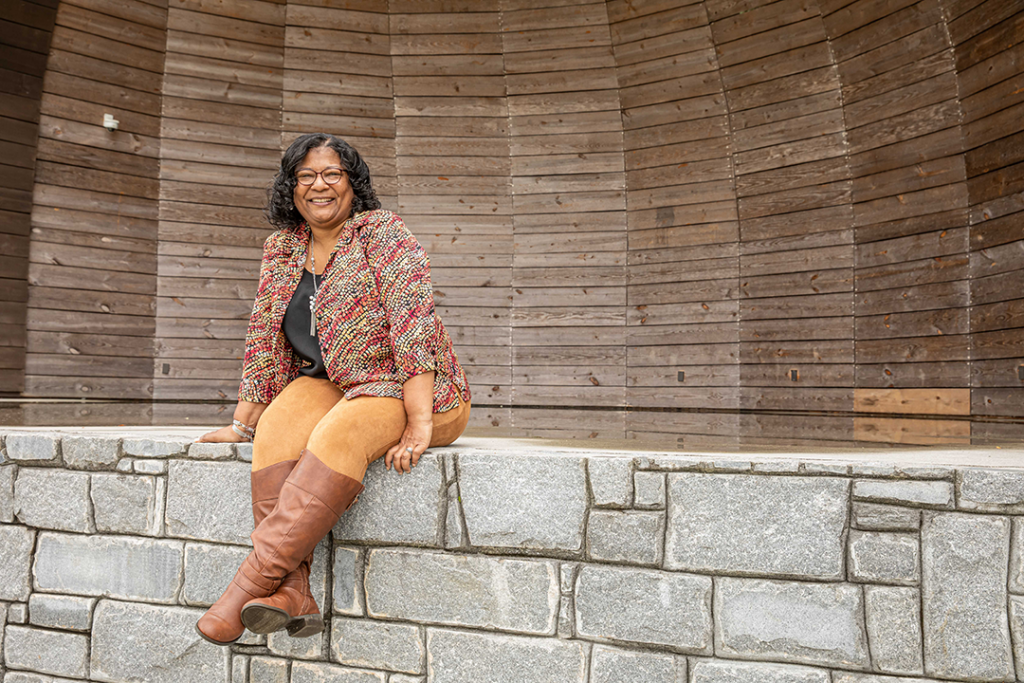
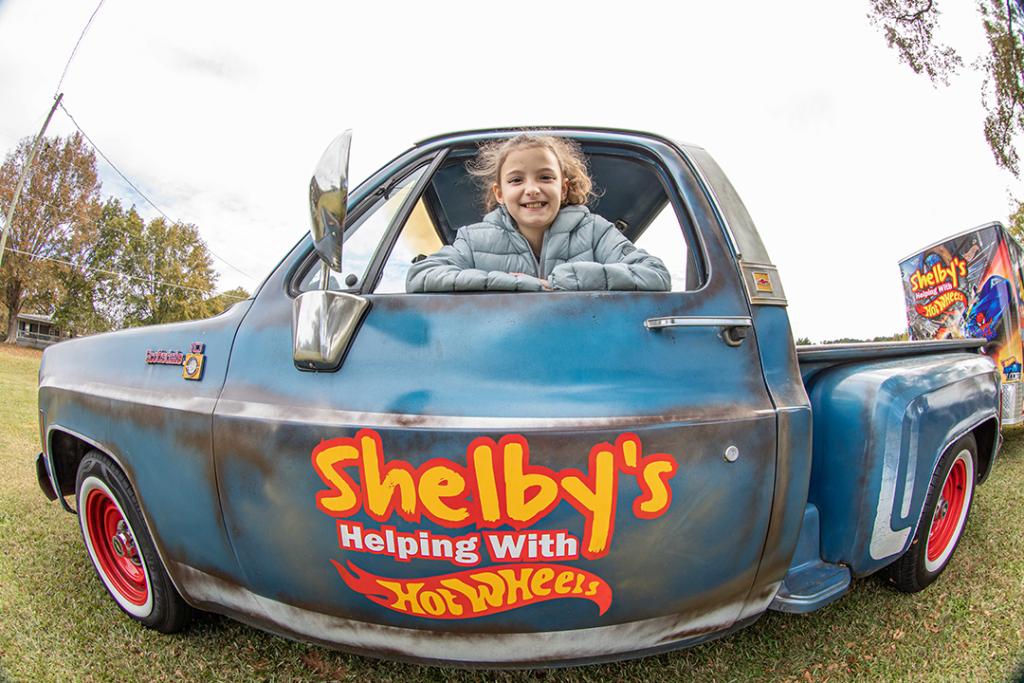
2 comments
What a beautiful and well written piece.